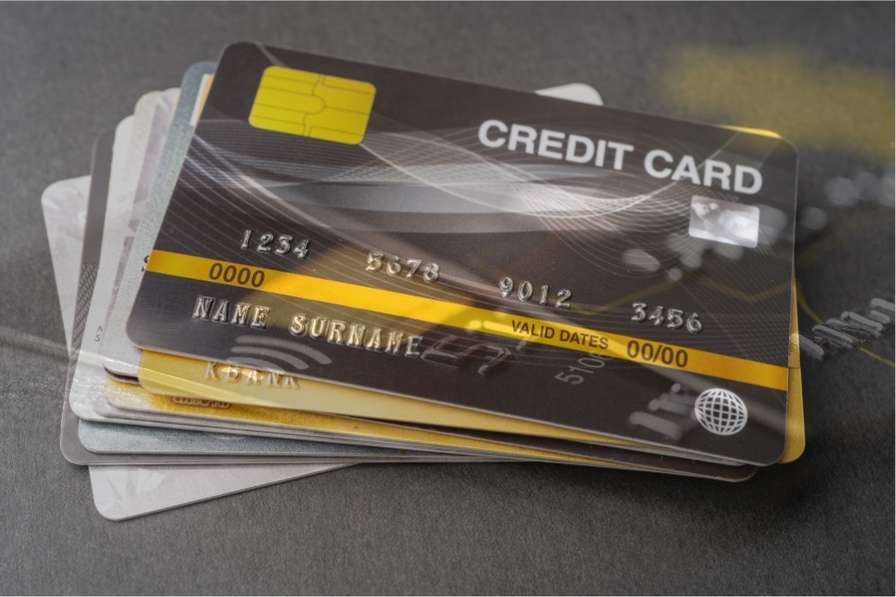The Truth About Credit Card Rewards: 5 Things You Need to Know in 2025

Credit card rewards can be a great way to make the most out of your everyday spending. Whether you’re earning cash back, accumulating travel points, or collecting miles, these rewards can offer substantial benefits when managed well. However, navigating the world of credit card rewards requires understanding the details to ensure you’re getting the most out of your cards without falling into common traps. Here’s what you need to know before you sign up and how to maximize the rewards to your advantage.
1. Understanding Credit Card Rewards: What You Need to Know Before Signing Up
What are Credit Card Rewards, and How Do They Work?
Credit card rewards are incentives offered by credit card companies in exchange for making purchases using their cards. These rewards come in various forms, including cash back, travel points, and miles. The way rewards work depends on the card issuer and the type of card you choose, but typically, you earn a percentage of the money spent as rewards.
For example, a cash back card might offer 1% back on every purchase, while a travel card might give you 2 points per dollar spent on travel-related purchases. As your spending accumulates, so do your rewards, which you can then redeem for goods, services, or statement credits.
A Breakdown of Different Reward Types (Points, Miles, Cash Back)
- Cash Back: This is the most straightforward type of reward. For every dollar you spend, you earn a percentage back in cash, which is credited to your account. Cash back cards are typically easy to use and flexible, allowing you to spend your rewards however you want.
- Points: These rewards are usually tied to specific programs like travel or merchandise redemption. For example, one point might equal one mile for airline tickets or a fixed amount towards hotel stays. Points often come with a loyalty program and can be redeemed for flights, hotel stays, gift cards, or other items.
- Miles: Specifically geared towards travel enthusiasts, miles rewards are typically associated with airlines. You earn miles for every dollar spent, and those miles can be redeemed for free flights, upgrades, or other travel-related perks.
The Pros and Cons of Using Credit Cards for Rewards
Pros:
- Earn rewards on everyday spending: If you’re already making purchases, you might as well earn something in return.
- Sign-up bonuses: Many cards offer substantial sign-up bonuses if you spend a certain amount within the first few months.
- Travel perks: If you travel frequently, credit cards offering travel rewards can be a great way to save on flights, hotels, and car rentals.
Cons:
- High-interest rates: If you don’t pay off your balance in full each month, the interest charges can quickly outweigh the value of the rewards.
- Fees: Some reward cards come with high annual fees that may cancel out the benefits unless you use the card frequently.
- Complex redemption systems: The process of redeeming rewards can be confusing and restrictive depending on the card issuer.
2. Maximizing Your Credit Card Points: Tips and Strategies
How to Earn More Points on Everyday Purchases
To maximize the rewards you earn, focus on using your credit card for purchases you already make regularly. Some strategies include:
- Use your card for bills: Many cards offer extra points for paying utilities, cell phone bills, or subscriptions.
- Automate payments: Set up automatic payments for recurring bills like insurance, memberships, and subscriptions, ensuring you never miss an opportunity to earn rewards.
- Use your card for big purchases: For larger, one-time purchases (like home appliances or electronics), using your credit card can quickly rack up a significant number of rewards points.
The Best Categories to Use for Maximizing Rewards (Dining, Travel, Groceries)
Many rewards cards offer higher points in specific categories. The key is knowing which categories provide the best returns and aligning them with your spending habits:
- Dining: Many cards offer extra points for dining out or ordering takeout. If you eat out often, this can be a great way to rack up rewards.
- Travel: Cards designed for frequent travelers might offer 2x or 3x points on hotel bookings, airfare, and rental cars.
- Groceries: Some cards give you bonus points on grocery store purchases. If you do a lot of grocery shopping, this can quickly add up.
Should You Combine Multiple Credit Cards for Maximum Rewards? Pros and Cons
Using multiple credit cards can help you maximize rewards, but it’s not always the right strategy for everyone. Here’s why:
- Pros:
- You can earn more in different categories (e.g., one card for groceries, another for travel).
- You might be able to take advantage of multiple sign-up bonuses.
- Cons:
- Managing multiple cards can be cumbersome, and forgetting a payment could hurt your credit score.
- Some cards come with annual fees that could outweigh the benefits of using them.
Before applying for multiple cards, make sure you’re organized and can keep track of payment dates, rewards categories, and annual fees.
3. The Best Rewards Credit Cards for 2025: Top Picks for Every Lifestyle
Best Credit Cards for Travel Rewards
- Chase Sapphire Preferred® Card: With 2x points on travel and dining, a large sign-up bonus, and excellent transfer partners (airlines, hotels), this card is great for frequent travelers.
- Capital One Venture Rewards Credit Card: Earn 2x miles on every purchase, which can be redeemed for travel expenses. This is ideal for those who prefer a flat rewards structure.
Best Credit Cards for Cash Back
- Citi® Double Cash Card: Earn 2% cash back on all purchases—1% when you buy and 1% when you pay. There’s no need to track categories.
- Blue Cash Preferred® Card from American Express: Get 6% cash back on select categories like groceries and streaming services, making it ideal for families.
Best Credit Cards for Dining Rewards
- American Express® Gold Card: Earn 4x points at restaurants, including takeout and delivery. This is great for foodies or anyone who eats out often.
- Chase Sapphire Reserve®: Earn 3x points on dining, plus additional travel benefits. A good option for those who enjoy dining out and travel frequently.
How to Choose the Right Card for Your Spending Habits
When deciding on the best rewards card for you, consider the following:
- Spending habits: Do you travel often, dine out, or buy groceries in bulk? Look for a card that rewards you for the categories you spend most in.
- Annual fees: Some rewards cards have hefty annual fees, so you need to make sure the rewards you earn justify the cost.
- Sign-up bonuses: Many cards offer large sign-up bonuses if you spend a certain amount within the first few months, but make sure you’re able to meet the requirements.
4. How to Avoid Common Mistakes with Credit Card Rewards Programs
Pitfalls of Missing Payment Deadlines and How It Impacts Rewards
One of the biggest mistakes cardholders make is failing to pay their credit card balance on time. Missing payments can lead to interest charges that negate the value of any rewards earned. Late payments also affect your credit score, making it harder to get approved for future credit. Always aim to pay off your balance in full each month to avoid interest charges.
The Importance of Understanding Reward Redemption Limits or Blackout Dates
Some reward programs come with restrictions, such as blackout dates for travel bookings or limits on how many rewards you can redeem in a year. Before you sign up for a card, make sure you understand the rules of reward redemption so you’re not left disappointed.
How to Avoid Fees that Can Cancel Out Your Rewards
Be mindful of fees that can eat into your rewards, such as annual fees, foreign transaction fees, and cash advance fees. While some rewards cards have excellent perks, the fees can quickly offset the value of the rewards if you’re not careful.
5. Understanding the Fine Print: What You Need to Know
When signing up for any rewards credit card, always read the fine print. Be sure to check:
- APR rates: Know the interest rates for purchases and cash advances.
- Bonus requirements: Understand the minimum spend requirements to qualify for bonuses.
- Reward expiration: Some rewards have expiration dates or limited use, so keep track of your points or miles.
By understanding these details and avoiding common pitfalls, you can ensure that you maximize the benefits of your credit card rewards and avoid any unpleasant surprises down the line.
In conclusion, credit card rewards can be a valuable tool for saving money, earning travel perks, and getting cash back, but they require careful management. By understanding how rewards work, using the right strategies to maximize them, and avoiding common mistakes, you can make your credit card rewards program work in your favor.






